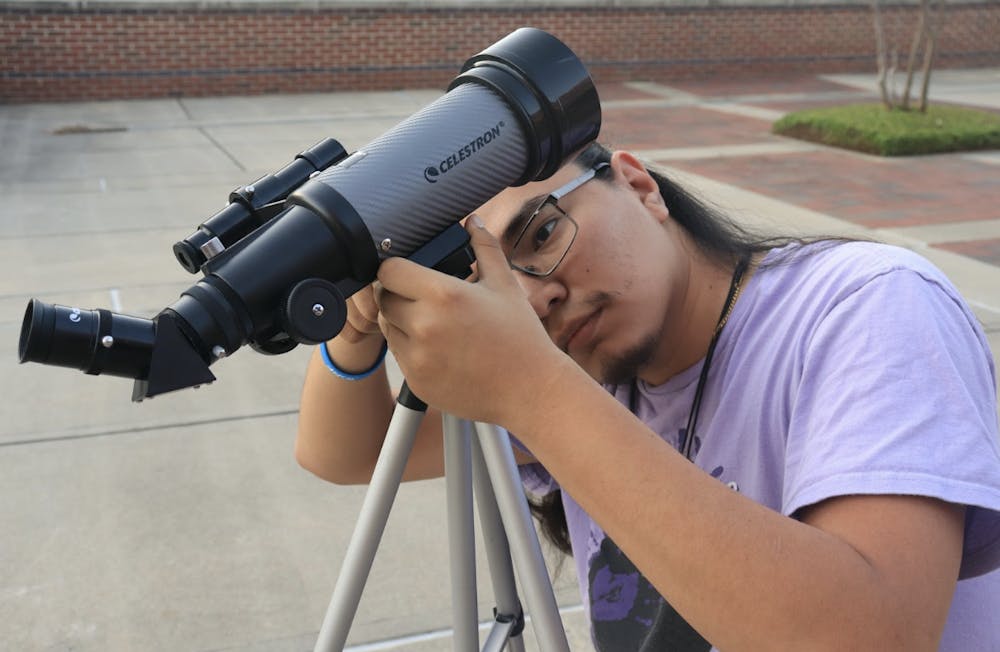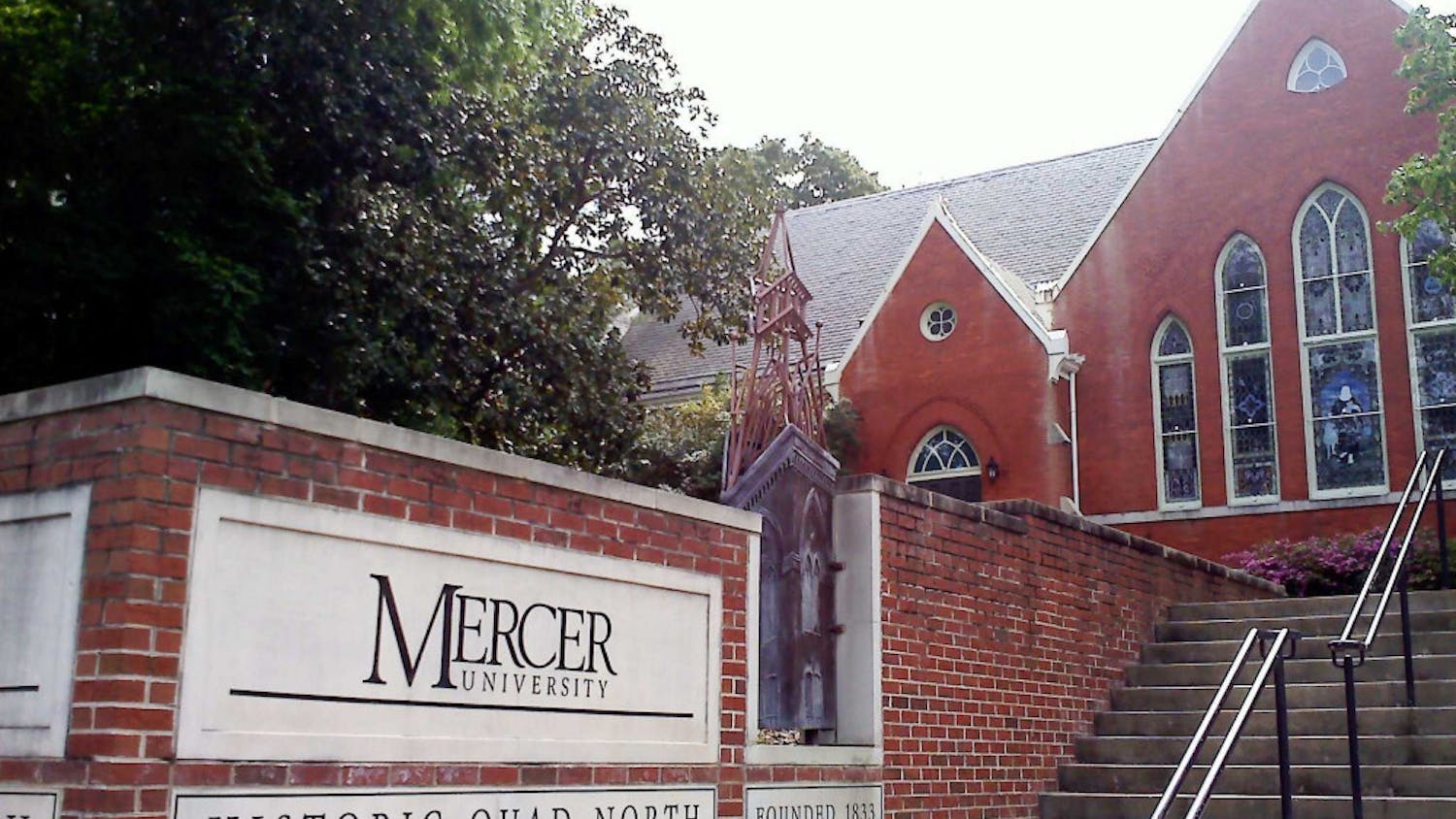As Mercer University progresses on to the end of another semester, students are encouraged to shoot for the stars and aim for the moon with a physics course available to all students.
In "PHY 115: Descriptive Astronomy," associate professor of physics Matthew Marone has been teaching students from all different backgrounds about the solar system and what can be observed from Earth’s sky. Not only does the class teach students about current astronomy theories, but it also offers them a hands-on experience learning how to put together and operate a telescope to see the sky at night.
Students in this class get the chance to see some of the common constellations, asterisms and deep-sky objects while also discussing the physical principles, historical components and mathematics behind these observations.
To participate in this class, students travel off-campus to sites chosen by the professor, providing their own transportation as well as helping transport the observation equipment. It has been found that the best time to observe the sky is on cold clear winter nights, which calls for students to prepare beforehand for the remote locations away from lights and restrooms.
Marone teaches various physics-related courses at Mercer but finds astronomy to be one of the most enjoyable courses to teach. He finds the observational part of astronomy to be a crowd favorite.
“It’s so amazing, just, how we do observational astronomy,” Marone said. “Teaching the students how to observe and identify things in the sky is so wonderful and even finding galaxies and different objects like stars, nebulae, and things like that. Getting people out looking through telescopes, and seeing that it's not all just math makes it a great experience.”
Marone enjoys giving the students at Mercer an experience observing astronomy and has been interested in astronomy since a very young age, which inspired him to study physics.
“I’ve always been interested in astronomy since I was a young kid,” Marone said. “We had a faculty member who taught astronomy and once he retired, we needed somebody else to teach it. And since it's kind of a hobby of mine as well, I thought, okay, that should be fairly easy to do. Right? So I just slid in and started teaching the class. But my focus was to make it observational and hands-on, not just theoretical.”
The class features some engineers, but also some non-STEM as well, with many using the course to fulfill their natural world credit for Mercer’s general education program.
Manuel Flores, a junior studying Latin on the pre-law track, enrolled in takes the class to help fulfill this credit and said he enjoys taking the class. Flores especially appreciates the observational aspect of the class the most.
“I am glad I took this course,” Flores said. “I've made some good memories because of it and it’s given me a reason to smile more.”
Flores is fond of traveling to the outdoor labs at the observatory site that the university owns in Lizella, which is 11 miles southwest of Macon.
He had to adapt Flores adapts to the scientific reasoning portion of the class as he considers his learning style for the class to be “attempting to do the math right…and failing.”
Flores has been able to show off to his friends and family his knowledge of the stars as a result of taking this course. He also recommends the class to other students interested in taking it another semester.
“Trust me,” Flores said. “If you take it with Dr. Marone you will love it.”
Michael Nierodzik, a sophomore studying civil engineering and the lab teaching assistant, also says the course is a unique topic, especially to help teach.
“As a TA my responsibilities are to assist with the labs, this mostly entails assisting students with setting up their telescopes and troubleshooting problems they might have,” Nierodzik said. “I also assist students with finding objects in the night sky as well as bringing out the extra needed equipment.”
Nierodzik is also fond of all the labs spent outdoors at the observing site, always finding plenty to observe in the night sky. He practiced constantly to help prepare, running through problems repeatedly as well as repeating the process of setting up a telescope a few times.
“A benefit to completing this course is a better understanding of the world and galaxy we live in,” Nierozdik said. “It helps put into perspective just how much we have left to learn about space and I’d recommend this course to anyone who is able to take it.”
PHY 115 will be taught by Dr. Frank McNally during the fall 2022 semester.





